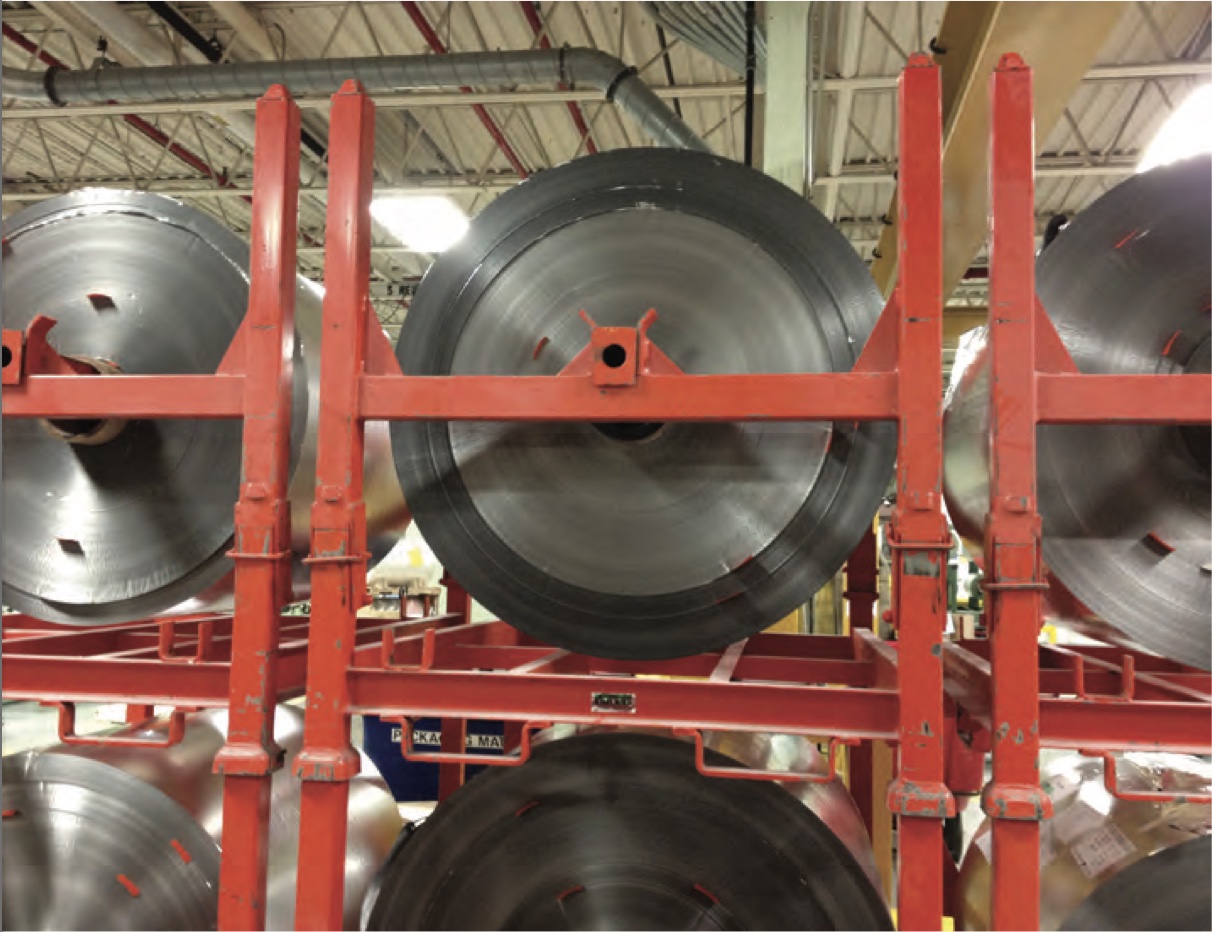Protecting Flexible Packaging Rolls with Custom Steel Racks
- Published: October 02, 2023
By Craig Heil, Manager, Steel King Industries
 To protect product quality and longevity, the food, beverage and personal care industries rely on flexible paper, foil or plastic-based packaging. However, before printing and converting into myriad finished packaging sizes, massive full or partial rolls of materials often must be stored for extended periods without any creasing, crimping or damage that could compromise product integrity or branding.
To protect product quality and longevity, the food, beverage and personal care industries rely on flexible paper, foil or plastic-based packaging. However, before printing and converting into myriad finished packaging sizes, massive full or partial rolls of materials often must be stored for extended periods without any creasing, crimping or damage that could compromise product integrity or branding.
Although some in the industry rest the heavy rolls of packaging materials on wood frames prior to use, this can cause compression damage and is not conducive to stacking. The challenge is that flexible paper, foil or plastic rolls can weigh as much as 5,000 pounds with 60-inch diameters and 72-inch lengths. So, setting a heavy roll down on any surface can leave an imprint or deform it, compromising quality and potentially making some of it unusable.
The ideal solution would be to hang each roll utilizing steel racks and inserting an integrated, supportive steel mandrel through its core. This arrangement enables safe storage and transfer of the roll by forklift to the production line.
Now, a growing number of flexible packaging industry professionals, converters and OEMs are turning to what is becoming an industry best practice: Custom steel racks that not only ensure roll integrity during storage but also facilitate safe conveyance by forklift to printing or converting areas while optimizing storage density.
The heavy-duty rack facilitates hanging and supporting each roll through its core with a sturdy steel mandrel that eliminates the compression damage of placing the material on a surface. The rack and mandrel are tailored for each roll’s specific size and weight, and some are designed to accommodate several partial rolls. Additionally, the rack can be designed to maximize storage density by enabling stacking.
For years, leading domestic providers of flexible packaging have turned to professional rack companies for custom steel shipping racks to store and move rolls. It is important to find a company specializing in the design and production of a variety of fabricated steel material handling products including storage racks and multi-use rigid, collapsible and adjustable shipping racks.
Storage and material handling specialists can customize rack size, weight capacity, construction materials and other factors. CAD solid modeling software and techniques can be used to design the steel racks and mandrels. Look for a company whose in-house, professional engineers are experts at analyzing OEMs’ operational systems and processes relative to the type and size of the rolls.
You should be able to request design configurations that tailor the racks to a specific manufacturer’s products and industry. To optimize storage capacity, companies often want stackable racks, or racks that can hold single or multiple partial rolls. To promote safety [when using forklifts] some like fork tubes, fork stirrups or steel u-shaped straps welded to the bottom of the rack.
The design depends on the type and shape of the mandrel being used to hang the roll and whether the rack will be stacked or not. A lot depends on the roll’s size and weight, which really is the biggest factor in how each rack is designed.
Although the packaging, converter and manufacturing industries have tolerated some paper, foil or plastic roll damage as a cost of doing business, using custom-engineered storage and material handling racks can better protect high-profile wrapper products while requiring less space. Industry professionals that adopt this best practice technique can substantially improve the integrity of their product and brand as well as the efficiency and safety of their storage and material handling.
About the Author
Craig Heil serves as a manager at Steel King Industries (www.steelking.com), a leading manufacturer of storage rack, shipping rack and material handling products since 1970.




